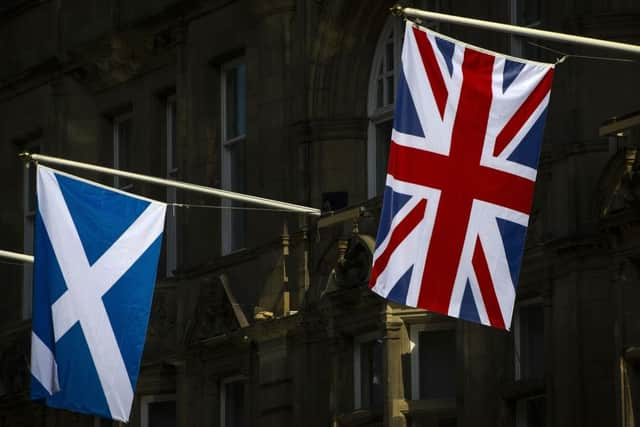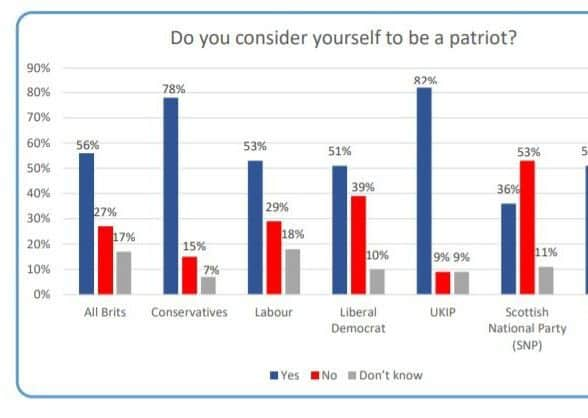Poll: Scots least likely to call themselves ‘patriots’ in the UK
Now a new poll, conducted as part of an investigation into British attitudes towards foreign policy, has found Scots are the least likely to describe themselves as “patriots” in the UK.
The survey, conducted by BMG Research on behalf of the British Foreign Policy Group (BFPG), found that over half of respondents (56 per cent) from across the UK identified with the term patriot.
Advertisement
Hide AdAdvertisement
Hide AdIt revealed that while 62 per cent of those in the south-east of England classed themselves as patriots, followed by 59 per cent in London, the figure fell to 47 per cent for those in Scotland and 48 per cent for those living in Wales.


One explanation for this geographical discrepancy, the report noted, is that the concept of patriotism is an “especially complicated issue” in the UK due to its historical status as a union of nations, with each constituent part building its own unique traditions.
But the survey found that ultimately most Britons view patriotism as a “benign” concept.
The report’s authors found the variations “may reflect on the geography of political engagement and of citizens’ uneven sense of engagement and representation in contemporary political processes”.


It added: “In the case of Scotland and Wales, we can see the complexity of multi-faceted national identities coming into play in this question, with ‘patriotism’ seen as inferring a patriotism to the United Kingdom or Great Britain, which may supersede national – and more closely felt – identities of national pride in the devolved nations.”
Major differences in attitudes towards patriotism were also found based on party affiliations.
Those who identified as UKIP voters (82 per cent) or Conservatives (78 per cent) were most likely to claim they were patriots. Of all the parties, SNP supporters were the least likely to see themselves as patriots (36 per cent).
The report added: “While surveys find a majority of Britons regard the respective national and union flags as a benign symbol of patriotism, between a fifth and a quarter of the population vehemently rejects the flying of these flags as nationalist or uncouth.
Advertisement
Hide AdAdvertisement
Hide Ad“The complexity of national identities in the UK means that surveys regarding patriotism carry an especially ambiguous dimension: it is unclear as to whether, for example, an English respondent is exerting his patriotism as associated with England, or the United Kingdom.
“While these identities are concurrently held by around a third of the population, and it is not unreasonable to assume that patriotism can manifest simultaneously between them, it is also true that longterm longitudinal studies suggest that there is a degree of dynamic movement within the population that is heavily influenced by political events and broader levels of satisfaction with the union as a political construct.
“As such, it is important to consider these results within the context of a changeable environment and carrying a high degree of subjectivity.”
